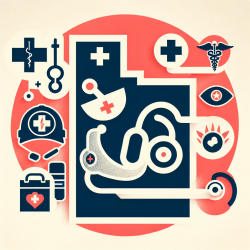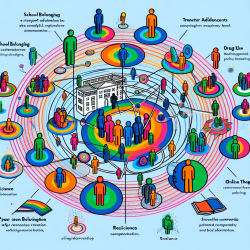As practitioners, we are always looking for ways to improve our skills and the outcomes for our clients. Recent research titled Treating Depression in Adolescents and Young Adults Using Remote Intensive Outpatient Programs: Quality Improvement Assessment provides valuable insights that can help us achieve these goals. This study evaluates the effectiveness of remote intensive outpatient programs (IOPs) in treating depression among adolescents and young adults.
The research highlights several key findings that can be directly applied to improve our practice:
- Significant Reduction in Depression Symptoms: The study found a significant decrease in depression scores from intake to discharge among participants, with a mean difference of –6.06. This underscores the effectiveness of remote IOPs in reducing depressive symptoms.
- Inclusivity and Effectiveness Across Demographics: No significant differences were found in treatment effectiveness across subgroups defined by age, gender identity, or sexual orientation. This suggests that remote IOPs are equally effective for diverse populations, including LGBTQ+ youth.
- Accessibility and Convenience: Remote IOPs remove geographic barriers, making it easier for adolescents and young adults to access care. This is particularly beneficial for those in rural areas or those who face transportation challenges.
- Personalized Treatment: The ability to create specialized treatment groups that cater to the unique needs of individuals based on their developmental stage and identity is a significant advantage of remote IOPs.
Implementing these findings in your practice can lead to better outcomes for your clients. Here are some actionable steps:
- Adopt Remote IOP Models: If you haven't already, consider integrating remote IOPs into your service offerings. This can expand your reach and improve accessibility for your clients.
- Focus on Inclusivity: Ensure that your programs are inclusive and sensitive to the needs of diverse populations, including LGBTQ+ youth.
- Utilize Technology: Leverage HIPAA-compliant video software to conduct sessions, ensuring privacy and security for your clients.
- Continuous Quality Improvement: Regularly assess and analyze outcomes data to inform clinical and programmatic decisions. This will help you continuously improve the effectiveness of your services.
By implementing these strategies, you can enhance your practice and provide better care for your clients. For those interested in delving deeper into the research, I encourage you to read the original research paper: Treating Depression in Adolescents and Young Adults Using Remote Intensive Outpatient Programs: Quality Improvement Assessment.










